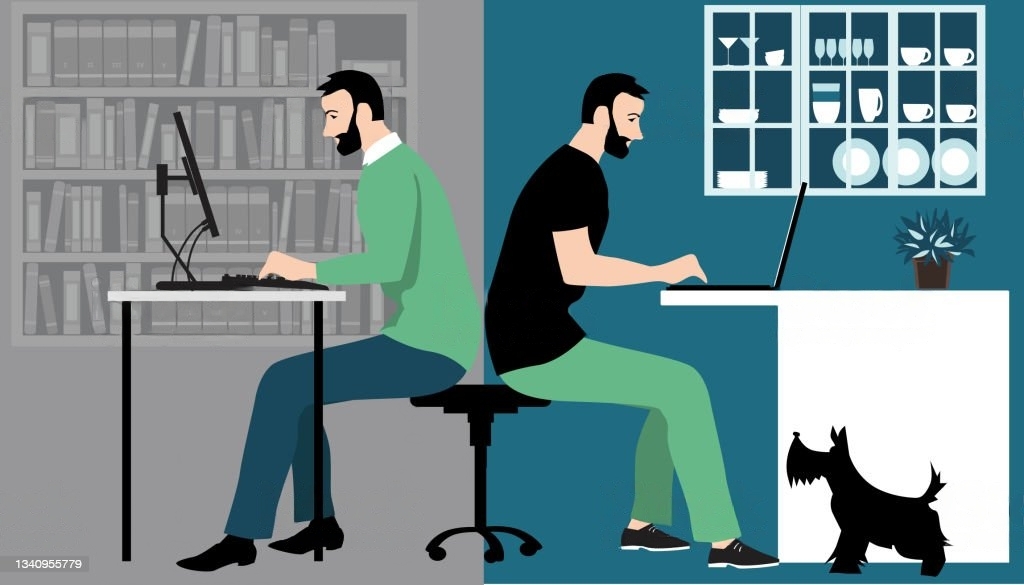The future of work is changing fast. With new technology popping up all the time, it's important for us to keep up and make sure we're ready for what's next. Remote work and freelance jobs are becoming more common. And the skills employers want are changing too. They want people who can think creatively, solve problems, and adapt to new things. Virtual and augmented reality will also play a bigger role in the workplace. These technologies will change how we work and communicate. It's important to stay informed and be ready for the changes to come. This website can help you do that by providing the latest information, tools, and resources.

Revolutionizing industries through automation and artificial intelligence

Embracing remote and flexible work for a modern workforce

Empowering independent workers through the gig economy

Enhancing collaboration and immersion through virtual and augmented reality technology in the workplace

Building soft skills for effective communication, teamwork and leadership in the future of work
The integration of automation and AI in the workplace is becoming increasingly prevalent. Automation can help streamline processes, increase efficiency and reduce the need for manual labor. AI can be used to analyze data, make predictions and even perform complex tasks such as customer service interactions. This integration can have a profound impact on industries and job roles, leading to new opportunities and efficiencies for companies, as well as the potential for new job roles for employees.


Remote work, also known as telecommuting, is a working arrangement where employees are not required to be physically present in an office. Remote working can be done from anywhere, as long as there is an internet connection. This can increase productivity, reduce the need for expensive office space and commuting, and improve the work-life balance of employees. Additionally, remote work can help companies to access a wider pool of talents and can be a great solution for a more diverse and inclusive workforce.

The gig economy, also known as the sharing economy, is a labor market characterized by the prevalence of short-term contracts or freelance work. Gig work can include everything from ride-sharing and delivery jobs to freelance writing and consulting. The gig economy is becoming increasingly popular, as it allows individuals to have more control over their work and income, and it can also help companies to have more flexibility on their workforce. Additionally, the gig economy can provide opportunities for individuals to develop their skills, and can also be a stepping stone for entrepreneurship.

Virtual reality (VR) and augmented reality (AR) technology has the potential to revolutionize the way we work. VR can be used to create immersive training simulations, while AR can be used to overlay digital information onto the real world. These technologies can be used to enhance collaboration, improve communication, and increase productivity in various fields such as education, healthcare, and manufacturing. Additionally, VR and AR can also provide opportunities for remote work, and can also be used to create a more interactive and engaging learning experience.

Soft skills are personal attributes that enable individuals to interact effectively and harmoniously with others. These skills include effective communication, teamwork, leadership, problem-solving, and emotional intelligence. As the world of work evolves, the demand for soft skills is likely to increase, as they are becoming more important in a world where many routine tasks can be automated. Companies and individuals who invest in soft skills development will be well-positioned to succeed in the future of work. Additionally, soft skills can also be essential for effective collaboration, innovation, and adaptability in the fast-paced business environment.


Balancing work and personal life through flexibility in the future of work

Empowering individuals with autonomy over their career paths

Staying competitive through continuous learning and skill development

Fostering creativity and innovation in the future of work

Building diverse and inclusive connections through remote and
virtual collaboration
In the future of work, the shackles of the traditional 9-5 work schedule will be loosened, leading to a greater sense of freedom and control for individuals. The ability to work remotely, on a flexible schedule, or on a part-time or freelance basis will provide individuals with the opportunity to shape their work around their personal and familial responsibilities, rather than the other way around. This can lead to a better work-life balance, and an overall improvement in well-being and job satisfaction.

The future of work also promises to give individuals a greater sense of ownership and control over their professional lives. With the rise of the gig economy, individuals will have more opportunities to pick and choose the projects and clients they work with, rather than being tied to a single employer. This can lead to a greater sense of purpose and fulfillment, as well as the ability to pursue one's passions and interests in a professional setting.

The future of work will be characterized by a constant state of flux, with rapid technological advancements and changing job market demands. In this context, continuous learning and skill development will be essential for individuals to stay relevant and competitive. This will provide individuals with the opportunity to take control of their own professional development, to learn new skills and technologies, and to stay ahead of the curve.

The future of work will also be a breeding ground for innovation and creativity, as technology and automation will free up time and resources for more creative endeavors. This will provide individuals with the opportunity to think outside the box, to come up with new and innovative solutions to problems, and to stand out in a crowded job market.

The future of work will be more connected than ever before, with greater opportunities for remote and virtual collaboration. This can lead to more diverse and inclusive teams, as well as the ability to connect with people and ideas from all around the world. This will provide individuals with the opportunity to build relationships and networks that can support their professional growth and development, as well as to gain a wider perspective on the world.
